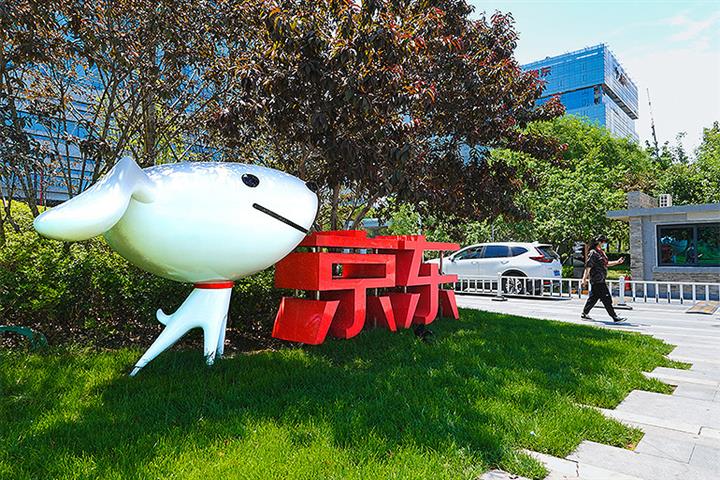 JD.Com’s Discount Shopping Channel Goes Live
JD.Com’s Discount Shopping Channel Goes Live(Yicai Global) March 7 -- Chinese e-commerce giant JD.Com has debuted its new 10 Billion Yuan shopping channel, offering subsidies on products to better compete with Pinduoduo, a group-buying platform famous for its discounted prices.
First started by Pinduoduo, other e-commerce platforms, including Alibaba’s Taobao, have followed suit in launching subsidized shopping channels, though they usually target only certain product categories.
JD.Com opened the 10 Billion Yuan channel very quickly, a source close to the Beijing-based company told Yicai Global. It was in touch with merchants around Feb. 20, wrapped up the bidding process on March 3, ran some tests, and launched the channel at 12 a.m. yesterday, the person noted.
“JD.Com is willing to offer subsidies to merchants to sell more products, so they won’t lose money and will be more willing to take part in the channel,” a consumer electronic vendor said, noting he will participate in the channel on a long-term basis. “At the same time, consumers will be more willing to buy subsidized products, which is another good thing for merchants.”
But some vendors are offering products that were released last year or popular items whose prices are unlikely to fall, interviews revealed.
Pinduoduo has not responded to the price war started by JD.Com. Taking Apple’s iPhone as an example, the 256-gigabyte iPhone 14 sells for CNY5,809 (USD837) on JD.Com’s 10 Billion Yuan channel, while it is priced at CNY5,959 on Pinduoduo, Yicai Global noticed. But the Shanghai-based company did say that its cross-border e-commerce business will expand to include Australia.
Pinduoduo had 870 million active users as of the end of 2021. JD.Com had 590 million annual active users at the end of the third quarter of 2022, according to it latest earnings report.
“Low prices were an important weapon for our success in the past and will be the only weapon in the future,” JD.Com’s founder Richard Liu said in an internal meeting at the end of last year while discussing the fact that the firm is losing its low price advantages.
How long the 10 Billion Yuan channel will go on for is a common concern of all parties involved. Many merchants told Yicai Global they hope JD.Com will not shift the cost of the subsidies to them.
JD.Com has not yet clarified whether the subsidies are shouldered by the company or shared with vendors. Pinduoduo, for example, lets merchants pay the subsidies themselves and then refunds the money through various promotional campaigns, vendors told Yicai Global earlier.
Moreover, platforms must carefully choose the commodities participating in such promotion campaigns and prevent price discrepancies online and offline. Meanwhile, merchants must find a balance between different e-commerce platforms when they sell products on more than one.
Editor: Futura Costaglione